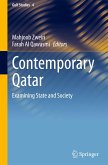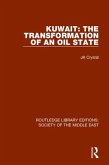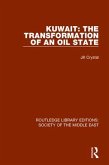This open access book approaches the history of tribes and their role in the formation of the modern states of Kuwait and Qatar by blending historical, political, and sociological perspectives. Traditionally, this subject has been approached from single perspective, often picturing the tribe as a political and social entity that is opposed to the modern state. In the Gulf context, presenting and discussing the case studies of Kuwait and Qatar aims at revealing that the tribe played a salient role in the formation of the modern state in these two countries as well as in nation building, both before the oil era and even after independence. Moreover, the book bridges an important gap that is often overlooked in GCC studies which explains how the tribe suddenly became a controversial factor in Gulf states and societies. The book elaborates on tracing the roots of this transformation and in evaluating the role played by the state as it attempted to manipulate tribes to achieve political and other advantages, only to trigger the rise of tribalism as a social and at times political force that undermines the legitimacy of the state. The book also highlights the impacts of this transformation, not only on the state, but also on society as a whole, with special emphasis on women in Kuwait and Qatar. It is relevant to scholars and advanced students in areas of political sociology, identify and gender, comparative politics, and for social scientists more broadly with a specific interest in the Middle East.
Bitte wählen Sie Ihr Anliegen aus.
Rechnungen
Retourenschein anfordern
Bestellstatus
Storno








